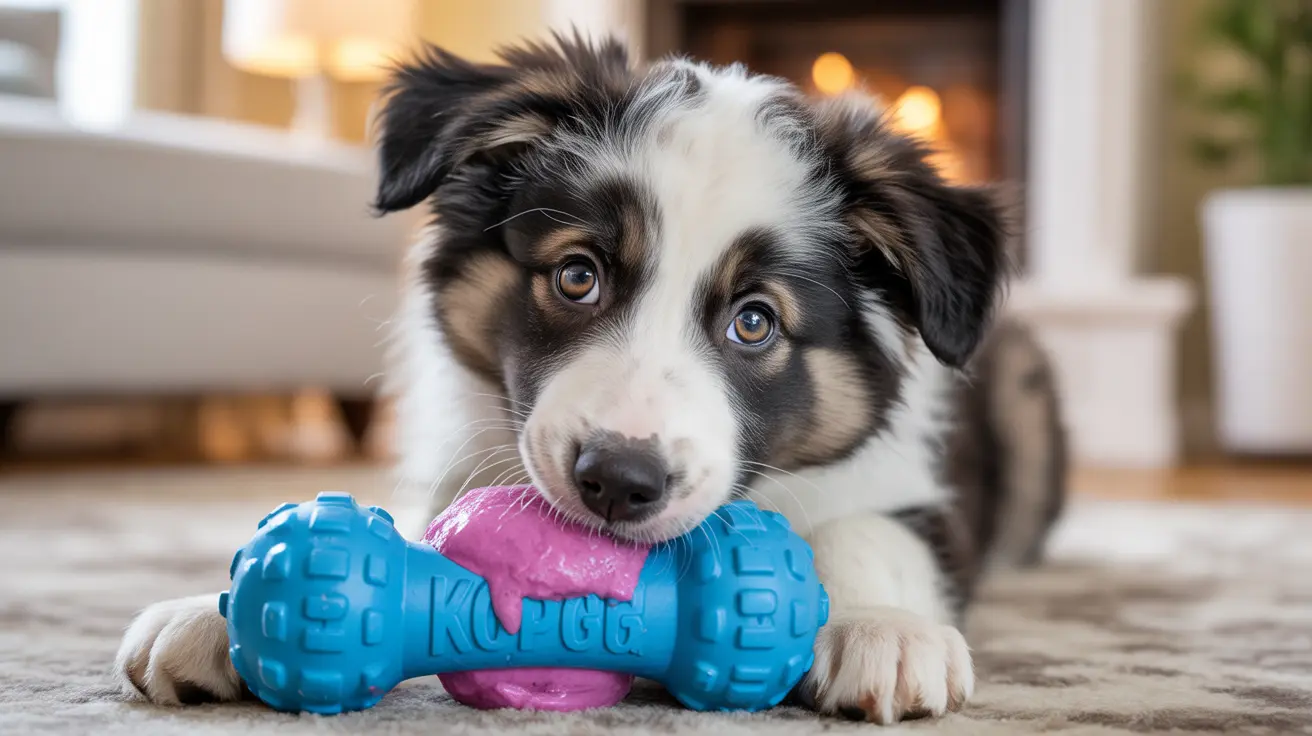What Is Rawhide and How Is It Made?
Rawhide is manufactured from the inner layer of cow or horse hides, which undergoes extensive processing before reaching store shelves. The manufacturing process often involves chemical treatments, including bleach and other potentially harmful substances, to clean and preserve the material.
Despite marketing claims about "natural" products, most rawhide chews contain artificial preservatives and processing agents that could be harmful to your puppy's developing digestive system.
The Hidden Dangers of Rawhide for Puppies
Choking and Obstruction Risks
Puppies are particularly vulnerable to choking on rawhide because they tend to be enthusiastic chewers who may bite off and swallow large pieces. These fragments can become lodged in the throat or create dangerous blockages in the digestive tract, potentially requiring emergency surgery.
Digestive System Complications
Unlike digestible treats, rawhide doesn't break down easily in a puppy's stomach. The material can swell up to four times its original size when wet, potentially causing:
- Intestinal blockages
- Severe constipation
- Stomach distention
- Vomiting and diarrhea
Chemical and Bacterial Concerns
The manufacturing process of rawhide often involves harsh chemicals that can remain in the final product. Additionally, bacterial contamination from Salmonella or E. coli is a documented risk, which can be especially dangerous for puppies with developing immune systems.
Signs Your Puppy May Be Having Trouble with Rawhide
Watch for these warning signs after giving your puppy rawhide:
- Excessive drooling or gagging
- Vomiting or diarrhea
- Lethargy or decreased appetite
- Difficulty passing stool
- Abdominal pain or swelling
Safe Alternatives to Rawhide for Puppies
Instead of rawhide, consider these veterinarian-approved alternatives:
- KONG puppy toys filled with frozen treats
- Specially designed puppy dental chews
- Natural rubber chew toys
- Frozen carrots or apple slices (supervised)
- Dehydrated sweet potato chews
How to Choose Safe Chew Toys for Your Puppy
When selecting chew toys for your puppy, follow these guidelines:
- Choose age-appropriate sizes and textures
- Look for products specifically designed for puppies
- Verify materials are non-toxic and puppy-safe
- Inspect toys regularly for wear and damage
- Always supervise chewing sessions
Frequently Asked Questions
Is rawhide safe for puppies to chew on, and what are the main health risks?
No, rawhide is generally not safe for puppies. The main health risks include choking, intestinal blockages, chemical exposure, and bacterial contamination. The indigestible nature of rawhide makes it particularly dangerous for puppies' developing digestive systems.
What should I do if my puppy swallows a piece of rawhide chew?
If your puppy swallows a piece of rawhide, monitor them closely for signs of distress such as choking, vomiting, or lethargy. Contact your veterinarian immediately if you notice any concerning symptoms, as prompt medical attention may be necessary to prevent serious complications.
Are there safer chew alternatives to rawhide for teething puppies?
Yes, many safer alternatives exist for teething puppies, including specially designed puppy dental chews, frozen treats, rubber toys, and natural options like frozen carrots. These alternatives provide similar benefits without the risks associated with rawhide.
How can I supervise my puppy when giving rawhide to reduce choking or blockage risks?
While it's best to avoid rawhide altogether, if you choose to use it, never leave your puppy unattended, remove the rawhide when it becomes small enough to swallow, and only allow short supervised chewing sessions. However, even with supervision, the risks remain significant.
Why do veterinarians often advise against giving rawhide to puppies, even those labeled as "puppy" rawhide?
Veterinarians advise against rawhide for puppies because even "puppy" versions carry the same inherent risks of choking and obstruction. The marketing term "puppy rawhide" doesn't change the fundamental dangers of the material, and safer alternatives are readily available.
Conclusion
While rawhide has been a traditional puppy chew for generations, current veterinary knowledge strongly suggests avoiding it, especially for puppies. With numerous safer alternatives available, there's no reason to risk your puppy's health with rawhide chews. Always consult with your veterinarian about the best and safest chewing options for your puppy's specific needs and age.






